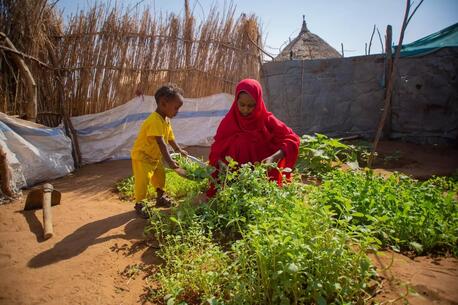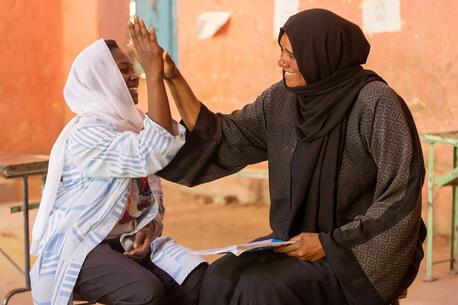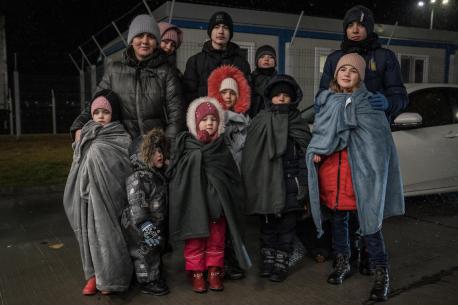
When Emergencies Hit, UNICEF Is Already There, Helping Children
Unrestricted funding keeps UNICEF ready to respond to emergencies, whenever and wherever children are in need.
When the war in Ukraine escalated suddenly one year ago, UNICEF leapt into high gear to ramp up urgent humanitarian aid for children caught in an unfolding crisis, distributing prepositioned supplies and rushing assistance to those in need.
UNICEF was already well-established in Ukraine, working with partners for decades to provide essential services to families, particularly those affected by eight years of armed conflict along the country's eastern border.
Just days after the escalation of the war, an initial supply delivery containing winter clothes for children, health supplies, recreational kits, early childhood kits and water and sanitation supplies was airlifted to Kyiv — enough to serve 20,000 people whose lives had been turned upside-down in an instant.
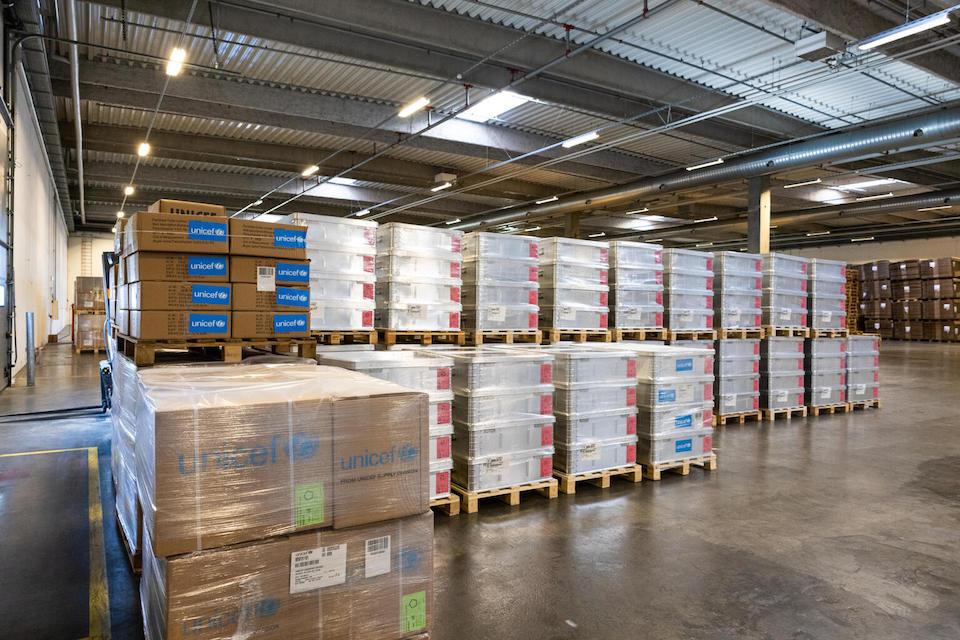
UNICEF's supply division can deliver emergency supplies anywhere in the world within 72 hours
In a crisis, every minute counts. With a presence in 190 countries and territories, UNICEF is on the ground whenever and wherever emergencies strike, ready to dispatch rapid response teams to where they are needed most.
UNICEF's supply and logistics division, based in Copenhagen, maintains the world's largest humanitarian supply warehouse, open 24 hours a day, 7 days a week to rapidly deliver the lifesaving supplies children rely on in an emergency, anywhere in the world, within 48 to 72 hours.
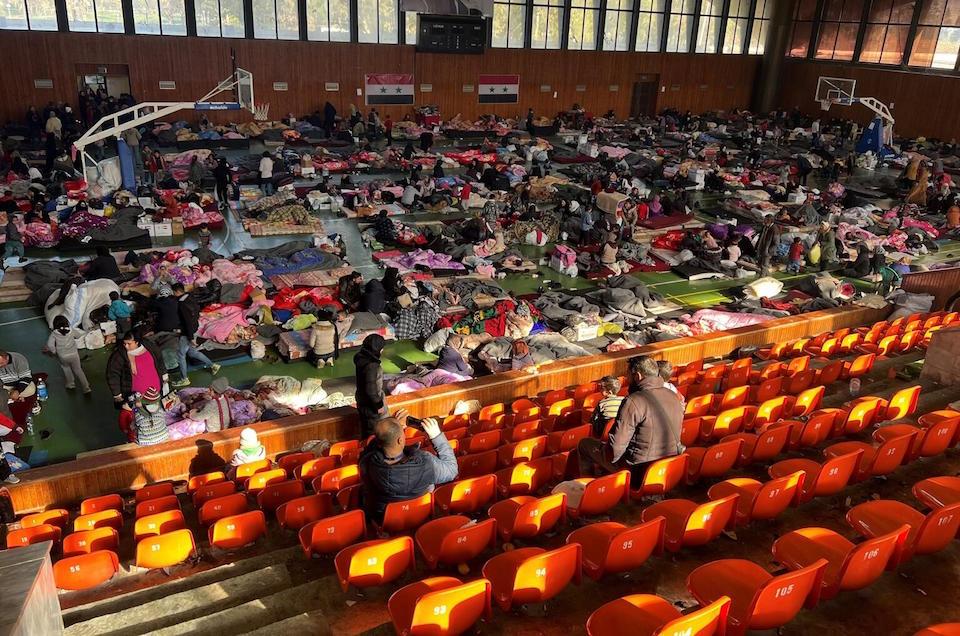
UNICEF rushed blankets, warm clothing, safe water, medical supplies, hygiene kits and nutrition support to aid children caught in crisis.
In conflict and disaster, children suffer first and suffer most
UNICEF puts children first when an emergency hits, strengthening child protection, providing health care and psychological first aid, screening and treating children for malnutrition, improving access to safe water, sanitation and hygiene, immunizing children to fight disease, and cleaning, assessing and repairing schools so children can get back to learning and regain a sense of normalcy.
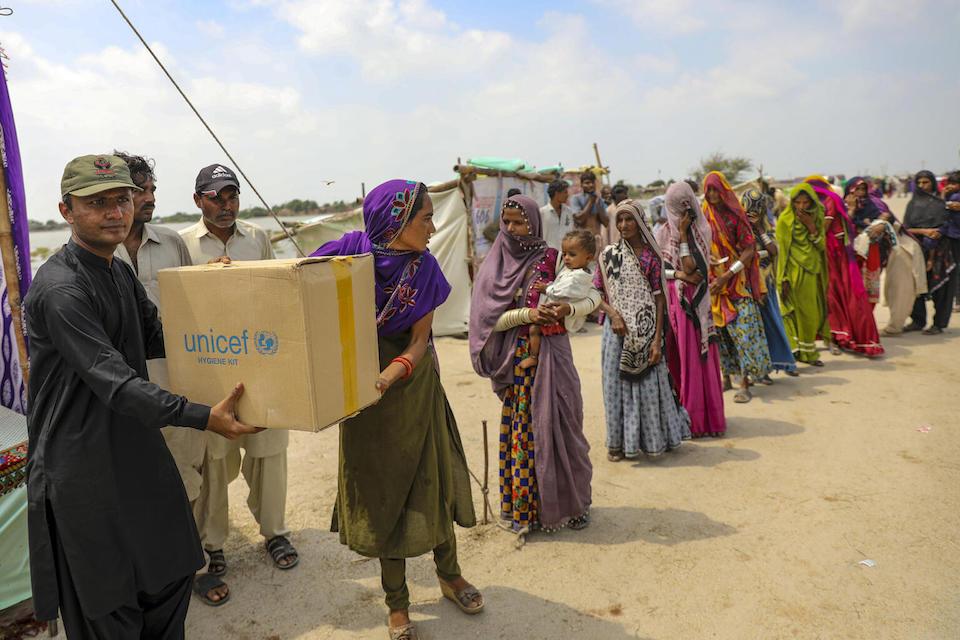
Flexible, unrestricted funding powers UNICEF's emergency response and longterm program work
This rapid response wouldn't be possible without unrestricted funding. Unearmarked contributions from partners and donors give UNICEF the flexibility to stay prepared to meet sudden, enormous needs in times of emergency and to sustain that support during protracted and forgotten crises after they fade from the front pages.
Flexible funds, also known as core resources, allow UNICEF to secure expert staff across all program work, to scale up proven solutions and best practices to build futures and strengthen the systems children rely on to grow up healthy and educated.
Core resources also power UNICEF's work to build stable, resilient communities better able to withstand future shocks from conflict, climate change and natural disasters.
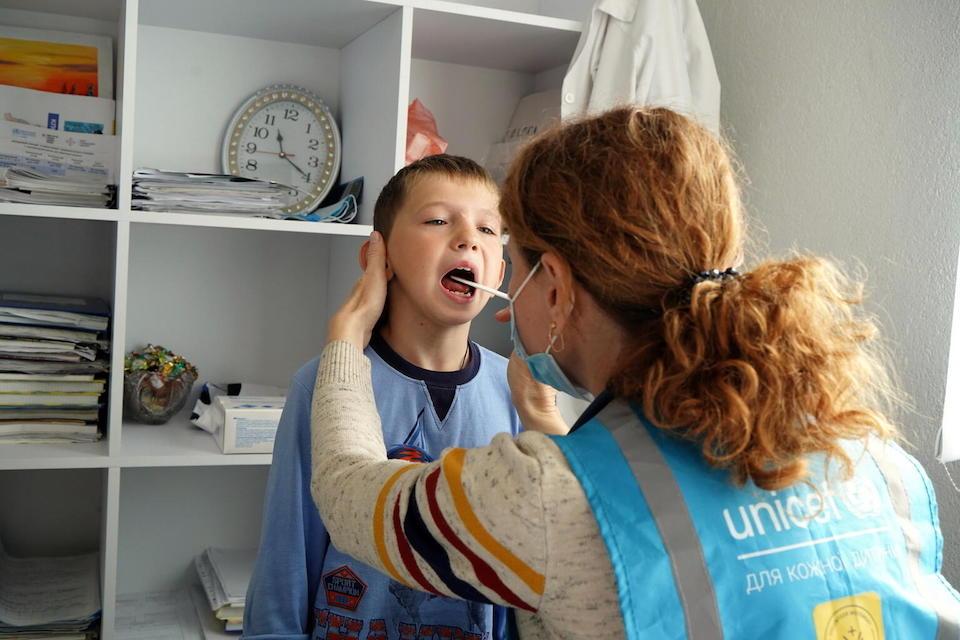
Sustainable interventions help communities recover from the impact of emergencies and build resilience
"Core funding is at the heart of our ability to achieve progress in all our work — in emergencies, in resilience building and in development," UNICEF Executive Director Catherine Russell said in Sept. 2022. "The challenges facing children — and facing UNICEF — sometimes seem insurmountable. But even in the most challenging circumstances, we can make a difference for children — and because we can, we must."
Your unrestricted contribution helps UNICEF stay at the ready to reach children when they need help most. Please donate.

